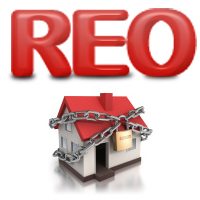Foreclosures, Short Sales or REOs, Which is More Profitable?
Fo reclosure, short sales and real-estate-owned are distressed sales, but are different from each other. Investing in these properties may be a profitable opportunity, but it needs a lot of experience and understanding of bunch of things. If you enter in a purchase contract for foreclosure, short sale or REO without proper knowledge, you may find yourself in a dangerous territory. Many short sales are foreclosures, not all foreclosures are short sales and not every short sale is a foreclosure. To further complicate matters, REOs are not short sales either, but some intended short sales can end up as an REO.
reclosure, short sales and real-estate-owned are distressed sales, but are different from each other. Investing in these properties may be a profitable opportunity, but it needs a lot of experience and understanding of bunch of things. If you enter in a purchase contract for foreclosure, short sale or REO without proper knowledge, you may find yourself in a dangerous territory. Many short sales are foreclosures, not all foreclosures are short sales and not every short sale is a foreclosure. To further complicate matters, REOs are not short sales either, but some intended short sales can end up as an REO.
What is Foreclosure?
“Foreclosure proceedings in which a mortgage lacks the power of sale clause. In such an instance, many states require the foreclosure to be processed through the state’s courts. If the court confirms that the debt is in default, an auction is held for the sale of the property in order to acquire funds to repay the lender. This differs from non-judicial foreclosures, which are processed without court intervention.”
What is a Foreclosure Property?
A property is called a foreclosure property when a notice of default has been served in the public records due to the inability of owner to pay the mortgage installments. In this situation owner stops making mortgage payments and the lender issues a notice that if the payments are not brought up-to-date, the property will be sold in a public auction to a higher bidder.
The most common reason lenders will file a notice of default is when a borrower is at least two payments late. There may be some other reasons of opting for foreclosure, but delayed payment is one of the major reasons. If the owner fails to bring the loan current, then the lender will take the property away from owner and will sell it in a public auction as a final step to recover the lent amount. The owner has a right to stop a property going into foreclosure by making the payment and bring the loan current within the given time.
Real estate investors are eager to invest in the foreclosure property because they often buy the property for the owed amount and get the home owner’s equity for free.
Effect of California Law on Foreclosure and short sale
Every state has little bit different foreclosure and short sale laws that can affect the process of short sale and foreclosure. Contact a real estate lawyer to completely understand your rights as a foreclosure or short sale buyer. It is to keep in mind that a real estate agent cannot represent a foreclosure investor if all of the following four statements were true:
- The home qualifies as the seller’s personal residence.
- The property is a single family home or 2 to 4 units.
- A Notice of Default has been filed in the public records against the property.
- The investor will not occupy the property.
An agent in California will be allowed to represent investor, if any of the above given statement is false, especially if the buyer was going to occupy the home. Representing an investor in California law requires that a real estate agent post a bond. No such bond is available in the state of California. Therefore, as a pre-foreclosure investor in California, many buyers were forced to act on their own. Failure to act according to the Home Equity Sales Act carries severe penalties including a provision that allows the seller to step back and cancel the sale up to two years after the sale of property to investor.
What is a Short Sale Property?
“Any sale of real estate that generates proceeds that are less than the amount owed on the property. A real estate short sale occurs when the lender and borrower decide that selling the property and absorbing a moderate loss is preferable to having the borrower default on the loan. It is therefore an alternative to foreclosure.”
Short sale is little bit different from a foreclosure. In a short sale investor don’t make any backup payments and simply buy the home less than the amount owed on the property. Investors make a deal with the current lender to take the less as compared to the owed to avoid the foreclosure.
The sellers are not going to make deal with an investor until the seller fails to make the mortgage payments timely. Being in default is not required by the law to have a short sale. Buying home less than the amount owed on it, make sense for investor.
What are REOs – Real Estate Owned?
 “Property owned by a lender after an unsuccessful sale at a foreclosure auction are real estate owned properties.”
“Property owned by a lender after an unsuccessful sale at a foreclosure auction are real estate owned properties.”
Making investment in REO is alike making investment in short sale property except the REO is already owned by the lender. When in an auction nobody wins a bid then lenders end up owning the property. REO homes are often considered the best option for buying a distressed property because it does not have the involvement of seller. There is only bank, investor and their agents who are negotiating for the transaction. Some real estate properties can be purchased directly from the lender.
